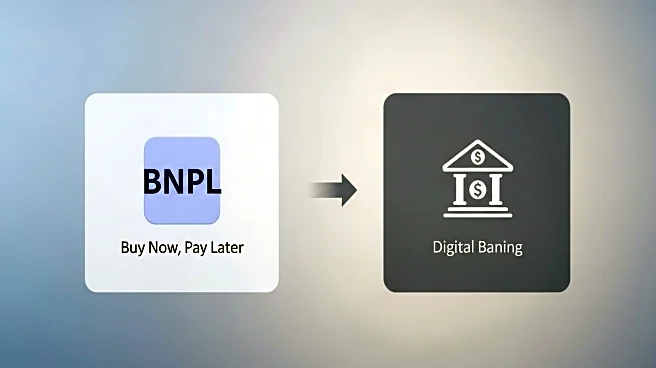What's Happening?
Klarna is preparing for its initial public offering (IPO), aiming to rebrand itself from a buy now, pay later (BNPL) service to a comprehensive digital bank. The Swedish fintech firm plans to price its shares between $35 and $37, valuing the company at up to $14 billion. This valuation is a decrease from its previous $45.6 billion valuation in 2021 but an improvement from a $6.7 billion valuation in a subsequent down round. Klarna's pivot to a neobank model includes offering personal bank accounts and debit cards, expanding its services beyond BNPL. The IPO will serve as a critical test of investor confidence in Klarna's new business strategy.
Why It's Important?
Klarna's IPO is pivotal for the fintech industry, as it reflects broader trends in digital banking and payment solutions. The company's shift from BNPL to a neobank model could influence investor perceptions and valuations of similar fintech firms. Klarna's ability to convince investors of its diversified offerings will impact its market position and future growth. Success in the IPO could signal strong investor appetite for fintech innovations, while failure might indicate skepticism about the viability of such business models. The outcome will have implications for Klarna's competitors and the fintech sector's evolution.
What's Next?
Following the IPO, Klarna will need to demonstrate its ability to execute its neobank strategy effectively. This includes expanding its banking services and maintaining growth in its core BNPL offerings. Investors will closely monitor Klarna's financial performance and strategic initiatives to assess its long-term viability. The company may face increased scrutiny regarding its profitability and market positioning compared to established financial institutions. Klarna's success in the IPO could pave the way for other fintech firms to pursue similar transitions, potentially reshaping the digital banking landscape.











